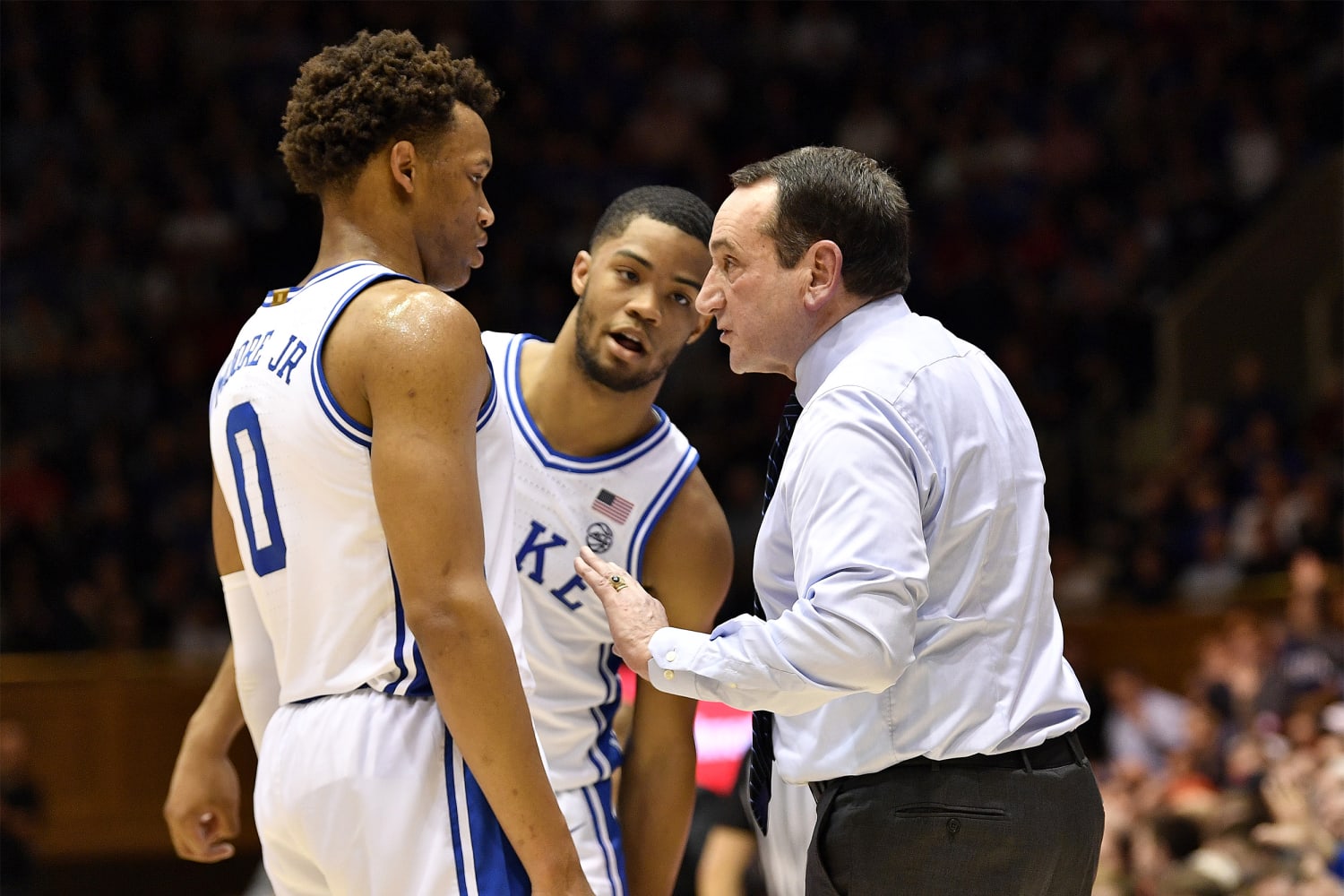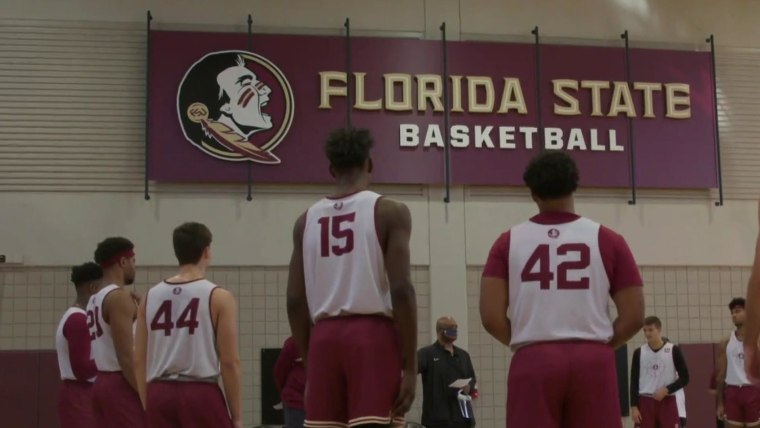Many colleges are fully or partially remote and clubs at all levels are cancelled, as are more and more athletic programs. So why are major indoor college sports like basketball still being played during a pandemic? Follow the money. In the context of basketball, Covid-19 already caused the cancellation last season of the lucrative postseason tournament known as March Madness — and a significant loss of income for the National Collegiate Athletic Association (NCAA), which oversees college sports. The NCAA wants to make absolutely certain the men’s and women’s tournaments are played in 2021.
CBS and Turner Sports will pay the NCAA around $770 million a year through 2024 to televise the men’s tournament; the rights fee will jump to $1.1 billion a year through 2032. ESPN pays the NCAA $500 million through 2024 for the rights to televise championships for 24 sports, including women’s basketball.
Many colleges are fully or partially remote. So why are major indoor college sports like basketball still being played during a pandemic?
With so much money on the line, the NCAA seems determined to finish the 2020-21 season by any means necessary, no matter the stakes. To that end, the NCAA has already announced that March Madness this year will take place in a bubble. But that bubble isn’t doing much to protect teams now — and pausing the season until infection rates go down feels like the logical way to both salvage the season and protect players.
After Duke University, a perennial power, travels to Notre Dame for a nationally televised game Wednesday night, Mike Krzyzewski, the Blue Devils’ legendary coach, will give his team two weeks off. Krzyzewski has canceled three games against schools outside of Duke’s Atlantic Coast Conference (ACC) during the Christmas break to allow his players to be with their families. And if Krzyzewski, also known as “Coach K,” had his way, the sport itself would shut down while Covid-19 continues to ravage the U.S.
“I don’t think it feels right to anybody,” said Krzyzewski, major college basketball’s all-time leader in career victories with 1,159.
The NCAA decided to start the 2020-2021 season on Nov. 25. But individual conferences like the ACC, the Southeastern Conference (SEC) and the Big Ten have the latitude to make their own rules within the sport. That has led to widespread cancellations and postponements of games because of the coronavirus — and to thoughtful coaches like Krzyzewski asking for an extended pause.
“I think I would just like, just for the safety, the mental health and the physical health of our players and staff to assess where we’re at,” Krzyzewski said last week after Duke (2-2) lost a non-conference game at home to Illinois as part of the made-for-television ACC/Big Ten Challenge.
That sounds perfectly reasonable. And with a Hall of Fame resume, Coach K is a thought leader in a sport that is essentially leaderless. And yet, he received pushback for his comments, not just from fans who crave college basketball — even if the games are played in empty arenas that serve as cavernous sound stages for TV productions — but also from other coaches who think the games represent an useful semblance of normalcy.
Coach K is a thought leader in a sport that is essentially leaderless. And yet, he received pushback for his comments.
“I think we’d have a whole lot more problems if we weren’t playing games — we 100 percent should be playing basketball,” Alabama coach Nate Oats said last week before taking a swipe at Krzyzewski. “Do you think he would have said that if he hadn’t just lost two non-conference games at home?”
In fact, Krzyzewski had expressed similar reservations before the season began. So did Hall of Famer Rick Pitino, who now coaches at New York’s Iona College. “You’re going to come back, you’re going to have a bad product,” Pitino said in mid-November.
College basketball has been a really bad product so far. Highly ranked Baylor University officially paused its season last weekend because of a Covid-19 outbreak. The Bears have played only one of their first seven scheduled games. The DePaul University men cancelled or postponed their first seven games. The Blue Demons now hope to play their season opener this Friday against Xavier. The DePaul women have been playing, but only because they’ve been wearing masks on the court on the advice of DePaul’s medical staff. Neither the NCAA nor any conference requires players to wear masks on court.
Such a scattershot approach to scheduling and playing games is bolstering Coach K’s call to put the season on hold. Yet some of his peers still object. “Humans aren’t made to sit alone in isolation for weeks and weeks on end,” Alabama coach Oats said last week. “A huge part of life for all these guys I’m coaching is being in the gym playing basketball. I think their mental health is in a much better spot playing basketball.”
But Oats’s players are in college. There should be enough coursework to keep them occupied while basketball takes a break — at least until enough student-athletes receive their vaccines. Since Health and Human Services Secretary Alex Azar said the U.S. hopes to vaccinate 50 million people by the end of January, it would be prudent to postpone college basketball until, say, February.
As is often the case in basketball matters, the statistics support Duke. For the past week, there have been approximately 3,000 deaths from Covid-19 in the U.S. every day, according to The Covid Tracking Project. And hospitalizations from Covid-19 hit a record high on Dec. 13 for the seventh consecutive day.
It is a coincidence that Duke’s dominant color is blue and Alabama’s is crimson, a deep shade of red. But politics is certainly a factor here. The Ivy League, a conference located in liberal blue states, was quick to cancel indoor sports such as basketball. But SEC schools like Alabama are in mostly conservative red states, where there seems to be more support for continuing sports during a pandemic.
At the highest level of college basketball, Division I, 53.6 percent of male players and 43 percent of female players are Black, according to the Institute for Diversity and Ethics in Sport. Medical evidence shows that Covid-19 is affecting Blacks disproportionately because of factors like preexisting medical conditions, stress and immunity, and often-crowded living conditions. And to dispel the myth that strong young athletes need not worry about the virus, consider Larry Fitzgerald, one of the finest receivers in National Football League history, who tested positive for Covid-19 on Nov. 26. The Arizona Cardinals star spoke with ESPN reporter Kimberley A. Martin, who tweeted this on Dec. 10:
Fitzgerald, who makes $11.5 million this year, played this past Sunday against the New York Giants. College basketball players are not being paid. They’re putting their health at risk to help their schools, conferences and the NCAA get richer. March Madness will be played at some point in 2021, even if it’s in May or June; and the NCAA plans to put the teams in bubbles — Indianapolis for the men, San Antonio for the women. The bubbles will also allow the NCAA to reduce costs since games will be played in only two venues. America will likely be healthier by then. So should college basketball. But it’s time now to put health first and call a timeout.
Source: | This article originally belongs to Nbcnews.com










